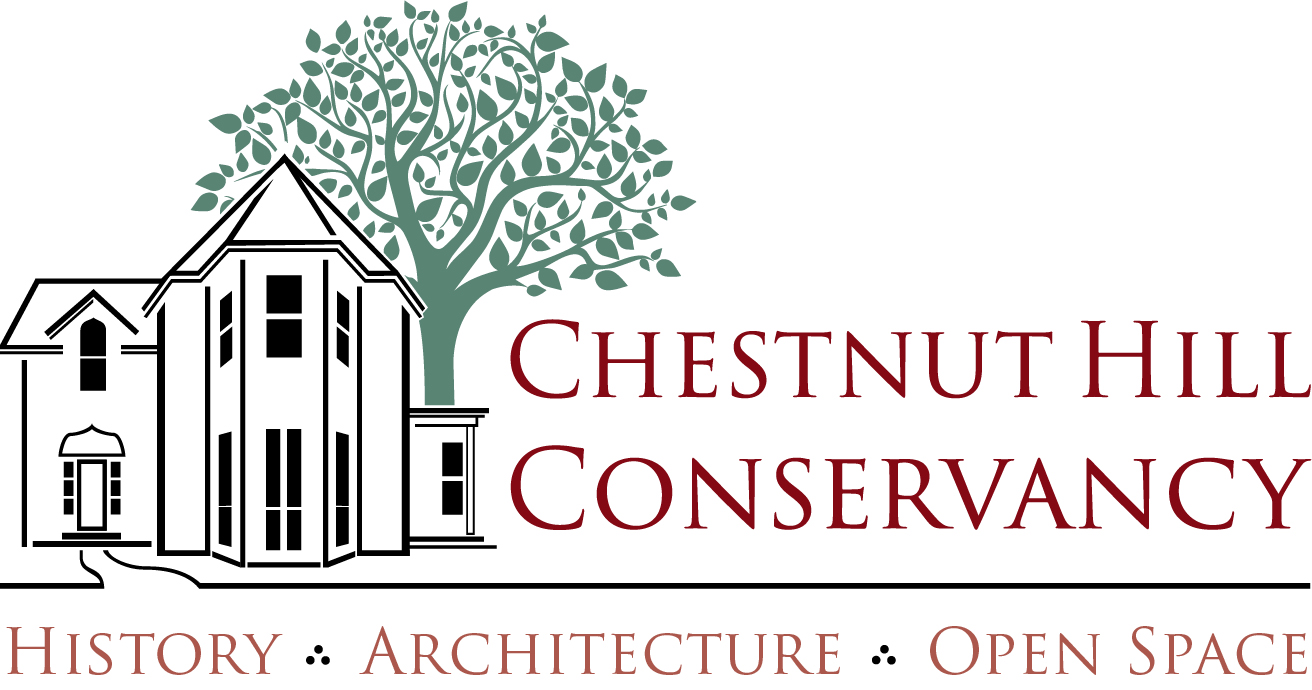
By Chrissy Clawson, Programs and Communications Manager
The Chestnut Hill Conservancy’s sold-out Spring Gala on Saturday, June 8, will honor Charlie Dilks, a man whose commitment to conservation has significantly impacted the community. Held on the grounds of a historic Norman-style home with conserved land in Wyndmoor, the gala will recognize his contributions to preserving the natural and historical beauty of Chestnut Hill and its surrounding areas.
A Lifelong Passion for Nature
Dilks’ conservation journey began in childhood, inspired by his mother, a naturalist who founded the Women’s Committee at the Academy of Natural Sciences. Growing up near Cresheim Creek, he spent countless hours exploring the Wissahickon, collecting salamanders, minnows, and crawfish. His passion for the environment deepened when he discovered a new crab species in Maple Shade, New Jersey, with Dr. Horace Richards from the Academy of Natural Sciences. Richards named the new species Prehepatus dilksi in honor of Charlie Dilks in 1962.
Recalling a recent visit to the Academy, Dilks shared, “I mentioned the story during a behind-the-scenes tour, and a staff member pulled it out of a drawer in the Academy archives.”
Books like “Stalking the Wild Asparagus” and “Stalking the Blue-Eyed Scallop” by Euell Gibbons sparked an interest in natural foods and foraging. This interest extended into his professional life, where he continuously sought ways to improve environmental health and sustainability. “Being brought up in that environment put me on the path,” he said. “That’s where it started and has kept me going ever since.”
Funding the Future
Recognizing that there are many like him in the community who wish to support environmental protection, Dilks introduced the “Catalyst” program to help fund a full-time easement manager at the Conservancy. Catalyst is the highest level of Conservancy membership ($5,000+), where half of the contribution can directly support the easement manager position.
“We needed the strength to take easements and enforce them, which requires financial and human resources,” he explained. “I felt and still feel that major donors need to step up and become more involved, contributing to overall operations and specific programs that ensure our future success.” This initiative established a full-time Easement Manager position at the Conservancy, enhancing the organization’s ability to protect and manage conservation easements.
“All our activities are important, but the easement program is particularly significant to me,” he said. “It’s about providing resources for people who want to preserve their properties and ensuring we have the staff and funding to support these efforts.”
Enduring Commitment
His long-term involvement with the Conservancy and other environmental organizations, such as Natural Lands, Friends of Fairmount Park (now called Fairmount Park Conservancy), Pennsylvania Environmental Council, the Schuylkill Center, and the Friends of the Wissahickon (FOW), underscores his enduring commitment. “Friends of the Wissahickon is one of the lucky organizations to have been led by Charlie Dilks as board president, and his leadership focused our work and significantly grew our organizational capacity,” said Ruffian Tittmann, the Executive Director of FOW.
Advice for Future Conservationists
To the next generation of conservationists, Dilks emphasizes the importance of financial stability. He believes having reserves for unforeseen contingencies and the ability to undertake new projects is essential for any organization’s longevity and effectiveness. “Without financial viability, important organizations could be just surviving from one month to the next,” he emphasized. “We need to ensure they have the resources to support these programs and grow.”
Evolving Conservation Efforts
Over the years, Dilks has witnessed significant advancements in conservation. When he first became involved, the FOW and the Conservancy shared offices and a small staff with 2.5 staff members for each organization. Today, both organizations have expanded their reach and are recognized leaders in the community of conservation. “There’s been a general movement towards greater awareness and action in environmental preservation,” he said. “The Conservancy and other groups are at the forefront of educating our community about the importance of these efforts.”
“Charlie’s dedication and vision have been instrumental in our growth,” said Lori Salganicoff, Executive Director of the Chestnut Hill Conservancy. “Since the Catalyst program began in 2018, we have added seven new conservation easements. Charlie saw opportunities and has always been first to participate.”
Sharing Institutional Knowledge
Playing a pivotal role in preserving institutional memory, Dilks offers his extensive experience to guide current and future efforts. He stresses the importance of asking questions and seeking knowledge to navigate the complexities of conservation work. “I’ve been involved with more than half a dozen environmental groups, bringing experience and insights to the Conservancy and the Friends,” he shared. “It’s about finding the right people and asking the right questions to continue our mission effectively.”
Looking Forward
As the Conservancy celebrates his contributions at the Spring Gala, it also looks to the future. His vision of a stable, growing organization continues to energize the Conservancy’s mission to preserve the natural and historical character of Chestnut Hill and surrounding communities in the Wissahickon watershed. “We have viable organizations able to undertake more activities and produce positive change,” he said. “It’s about looking ahead and ensuring we have the resources and leadership to keep moving forward.”
Charlie Dilks’s legacy is a testament to the power of dedication, vision, and community support in conservation.
